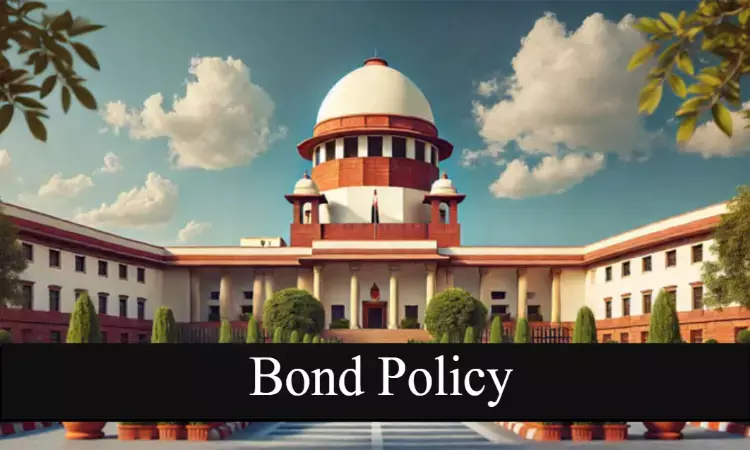- Home
- Medical news & Guidelines
- Anesthesiology
- Cardiology and CTVS
- Critical Care
- Dentistry
- Dermatology
- Diabetes and Endocrinology
- ENT
- Gastroenterology
- Medicine
- Nephrology
- Neurology
- Obstretics-Gynaecology
- Oncology
- Ophthalmology
- Orthopaedics
- Pediatrics-Neonatology
- Psychiatry
- Pulmonology
- Radiology
- Surgery
- Urology
- Laboratory Medicine
- Diet
- Nursing
- Paramedical
- Physiotherapy
- Health news
- Fact Check
- Bone Health Fact Check
- Brain Health Fact Check
- Cancer Related Fact Check
- Child Care Fact Check
- Dental and oral health fact check
- Diabetes and metabolic health fact check
- Diet and Nutrition Fact Check
- Eye and ENT Care Fact Check
- Fitness fact check
- Gut health fact check
- Heart health fact check
- Kidney health fact check
- Medical education fact check
- Men's health fact check
- Respiratory fact check
- Skin and hair care fact check
- Vaccine and Immunization fact check
- Women's health fact check
- AYUSH
- State News
- Andaman and Nicobar Islands
- Andhra Pradesh
- Arunachal Pradesh
- Assam
- Bihar
- Chandigarh
- Chattisgarh
- Dadra and Nagar Haveli
- Daman and Diu
- Delhi
- Goa
- Gujarat
- Haryana
- Himachal Pradesh
- Jammu & Kashmir
- Jharkhand
- Karnataka
- Kerala
- Ladakh
- Lakshadweep
- Madhya Pradesh
- Maharashtra
- Manipur
- Meghalaya
- Mizoram
- Nagaland
- Odisha
- Puducherry
- Punjab
- Rajasthan
- Sikkim
- Tamil Nadu
- Telangana
- Tripura
- Uttar Pradesh
- Uttrakhand
- West Bengal
- Medical Education
- Industry
Bond service or Bonded Labour? Supreme Court slams States Mandatory Remote Service bond policies

Supreme Court
New Delhi: The Supreme Court has strongly criticized states imposing a bond on All India Quota (AIQ) MBBS students, forcing them to serve in remote areas after completing their medical courses. The bench, comprising Justices Surya Kant and N. Kotiswar Singh, likened the mandatory bond service policies to "bonded labour," expressing concern over the practice.
The court raised concerns about the fairness of such policies, pointing out that All India Quota students are generally more meritorious than those admitted under the state quota. "How can these talented and meritorious people be treated like bonded labourers?" the bench remarked, stressing that states should not impose mandatory conditions on these students, particularly when they are being asked to serve in areas far removed from their place of origin.
According to PTI report, the apex court made the remarks in view of Uttarakhand High Court upholding a 2009 policy of the state, which mandated the All India Quota students pursuing education in medical colleges in the state to sign a bond and serve the "inaccessible" and "extremely inaccessible" areas for five years in lieu of subsidised fees.
"The students who have qualified in the All India Quota are more meritorious than those admitted under the state quota. How can these talented and meritorious people be treated like bonded labourers?" the bench observed.
"The states cannot impose conditions on the students in the All India Quota and impose a penalty of lakhs of rupees for not executing the bond to serve in rural areas and treat them like bonded labourers," it said.
"A patient in a remote area of Uttarakhand will not be able to convey his suffering to the doctor originally from Tamil Nadu and the doctor, despite having all his good intentions, would not be able to treat the patient. How will this work?" -- said Justice Surya Kant.
"The appellant students are meritorious candidates who competed in an All India Examination and secured their admission on merit, Even if they committed a mistake in executing a bond and paying Rs 15 thousand per year, the bond itself gave an exit door to them to wriggle out of its consequences by paying the annual fee of Rs 2.20 lakh as directed by the high court," the bench said.
For the compulsory rural service bonds, the NMC Task Force recommended transitioning it from compulsory service to a system of positive incentives such as paying higher fees for service in rural areas, granting grace marks, providing reservations in PG or super-specialization seats for completing rural service etc.
"States continue to rely on this compulsory method to compensate for inadequate investment in health resources, playing with the lives of medical students, and public health safety at large. This approach should be avoided as a perpetual solution, as it places undue strain on public health and fails to address the root issue of resource allocation in the healthcare system. States must invest adequately in health infrastructure to sustainably meet public health needs without relying on compulsory service bonds. To alleviate the financial burden on students and foster a more nurturing educational setting, it is proposed to abolish both the seat leaving and compulsory rural service bond," the Task Force mentioned in its report.
Garima joined Medical Dialogues in 2017 and currently works as the Senior Editor. She oversees coverage of all healthcare topics, with a focus on medico-legal cases, regulatory updates, decisions by NMC, DCI and medical councils, developments in medical education, government policies, and news on medical and dental colleges. She holds a Master’s degree in Journalism and Mass Communication and can be contacted at editorial@medicaldialogues.in | 011-43720751.



